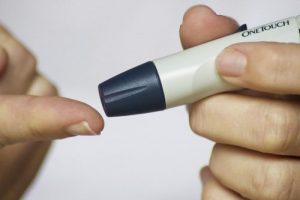- Home
- Editorial
- News
- Practice Guidelines
- Anesthesiology Guidelines
- Cancer Guidelines
- Cardiac Sciences Guidelines
- Critical Care Guidelines
- Dentistry Guidelines
- Dermatology Guidelines
- Diabetes and Endo Guidelines
- Diagnostics Guidelines
- ENT Guidelines
- Featured Practice Guidelines
- Gastroenterology Guidelines
- Geriatrics Guidelines
- Medicine Guidelines
- Nephrology Guidelines
- Neurosciences Guidelines
- Obs and Gynae Guidelines
- Ophthalmology Guidelines
- Orthopaedics Guidelines
- Paediatrics Guidelines
- Psychiatry Guidelines
- Pulmonology Guidelines
- Radiology Guidelines
- Surgery Guidelines
- Urology Guidelines
Gastric banding as effective as metformin in stabilizing diabetes

People with prediabetes or new-onset type 2 diabetes who had gastric banding had similar stabilization of their disease to those who took metformin alone, according to a study supported by the National Institutes of Health. The study has been published in Diabetes Care , coinciding with a presentation during the European Association for the Study of Diabetes Annual Meeting in Berlin.
The Beta Cell Restoration through Fat Mitigation study, or BetaFat, enrolled 88 participants with mild to moderate obesity and either prediabetes or new-onset type 2 diabetes. Half of the participants were randomly assigned to receive a gastric banding procedure, involving placement of a band around the upper part of the stomach to slow digestion. The other participants received the drug metformin, the most common first-line medication for people with prediabetes and early type 2 diabetes. The BetaFat study was conducted at the University of Southern California, Los Angeles, in collaboration with Kaiser Permanente Southern California (NCT01763346).
After two years, people in the gastric banding group lost significantly more weight, an average of 23 pounds, compared to four pounds in the metformin group. The two treatment groups ended up with similar improvements in insulin sensitivity and relatively stable function of insulin-producing cells, with small improvements in blood glucose levels.
These results are part of the Restoring Insulin Secretion (RISE) study, a set of three clinical trials designed to find ways to reverse or slow the loss of insulin production and release in people at risk for type 2 diabetes or recently diagnosed with the disease so that they can stay healthier longer. While BetaFat compared results from surgical weight loss to medication, the two other RISE trials examine the effects of a variety of medications in youth and adults.

Disclaimer: This site is primarily intended for healthcare professionals. Any content/information on this website does not replace the advice of medical and/or health professionals and should not be construed as medical/diagnostic advice/endorsement or prescription. Use of this site is subject to our terms of use, privacy policy, advertisement policy. © 2020 Minerva Medical Treatment Pvt Ltd